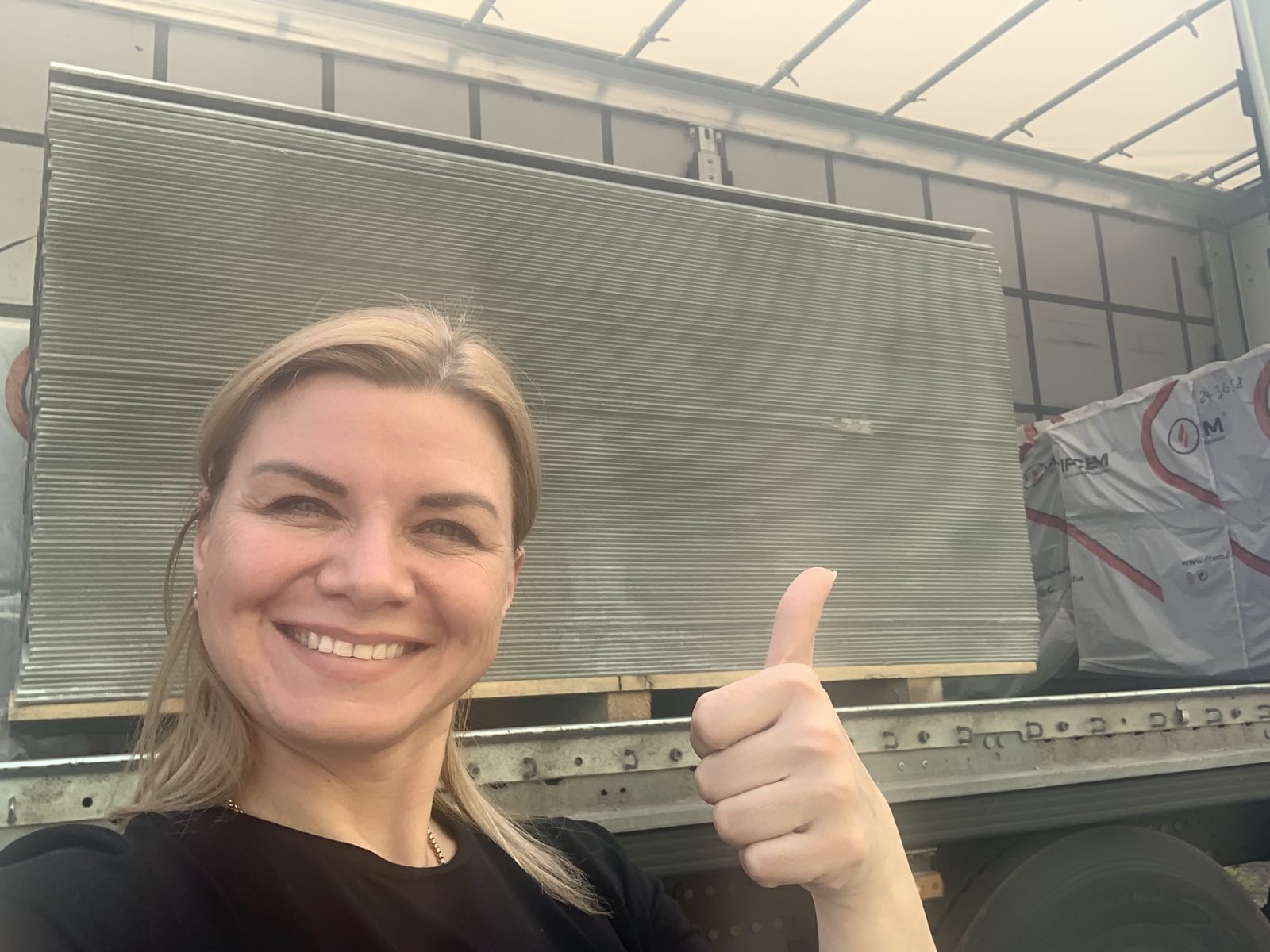
A robbed school and military posts made out of its furniture, seized and ruined Ukrainian books, and half of the housing stock rendered uninhabitable -- this is the reality of the Savyntsi settlement, which is considered "almost not ruined."
However, this epithet only applies when comparing Savyntsi village to other settlements in the united territorial community.
According to Oksana Suprun, the head of the Savyntsi military administration, Dovhalivka and Zalyman suffered the worst destruction as the frontline passed through. Over a hundred buildings were totally destroyed in Zalyman alone.
It was the end of December 2022 when Oksana was appointed chief of the Savyntsi military administration by presidential decree. Even though the settlement was already free of occupation at the time, there was still enough damage to contend with.






The intense ruination, however, didn't stop occupational authorities from reigning from Balaklia, Oksana's hometown. They also established a cultural department here. However, none of its employees were culturally aware. Those were personas who smelled power they'd never had before.
"Well, I am glad that most local cultural workers did not agree to cooperate with them," Oksana says, looking on the bright side of life.
Not a judger herself, she waits for legal justice to be served, knowing that there were locals who sincerely collaborated with the enemy, as well as those who couldn't leave while it was still possible.
Until May 7, there was more or less free movement, and people could pass through Russian checkpoints. From then on, the exit was completely closed, and the occupiers refused to let anyone leave.
Oksana left Balaklia in April 2022, taking only her dog and passport as the newcomers were looking for her, knocking on the neighbors' doors, and showing her photo. At that time, she had a history of serving among Balaklia authorities.
Only the markets remained open in the occupied settlements from March to September 2022, before the territorial community's liberation. There were no pharmacies or grocery stores nearby. Even bread was brought in from Kupiansk.
According to Oksana, the Russians brought humanitarian aid, but the manner in which it was delivered terrified some locals.
"You couldn't refuse to take aid from them because it would mean that you have something else, and if you did, your life would be in danger. Some Ukrainians didn't take the aid out of principle and suffered as a result."
Now that everything is working again and essentials are provided, when water, gas supply, and electricity have been restored, people continue to live with a heavy heart.




"Many people have been tortured and disappeared in both Savyntsi and Balaklia. According to official reports, over 400 people have passed through the Balaklia torture chamber, while unofficial sources claim the number exceeds 1,000," says Oksana.
She personally is actively involved in the search, familiar with the pain of loss as her cousin Maxym was tortured to death. He was a lawyer and a person with strong pro-Ukrainian views. The body was buried in a closed coffin without the family even seeing it.
Nevertheless, the lack of mass burials in the settlements gives hope that some of the missing may be found.
"Parents are still looking for their children, as there are tens of vanished. We are doing our best. We also appealed to the International Red Cross for help locating those who had disappeared."
The good news is that while the searches continue, the returns are also happening.
When the Savyntsi united territorial community was liberated, there were only 2400 residents left, but now there are nearly 6,000. Many more are waiting for the war to end so they can return home.
As time passes, Oksana speaks calmly of the war's devastation, focusing on the future instead of dwelling on the past. It doesn't mean she isn't sad at times, but it does remark once again on the strength of a human soul.
